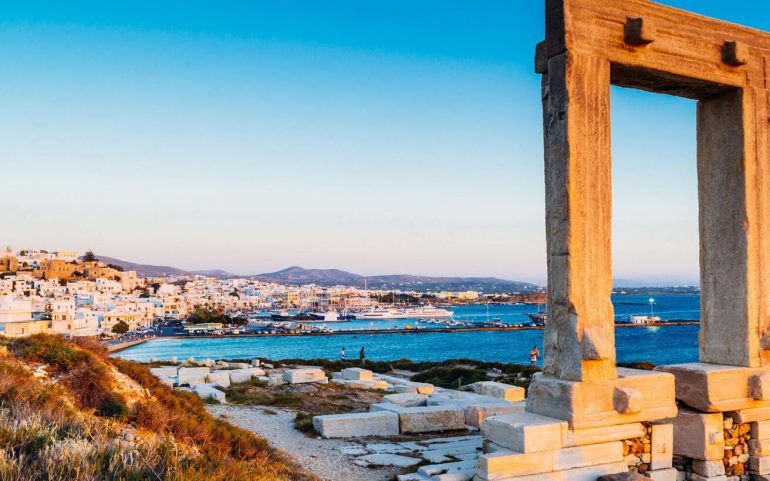Some of the biggest Myths and the mysteries of the history of the Greek islands, elaborately elaborated through seductive stories, are inextricably linked to the existence and history of favorite and popular destinations in Cyclades.
Stories that exude the imagination full of love, pain, death and intrigue leave a veil of mystery hovering over each of the νησιά following, giving the visitor the feeling that he walks on the same paths, hike in the same mountains and calms down on the same beaches, where sometimes some of the most characteristic mythological gods - among them Zeus, Aphrodite, Dionysus, Eris they enjoyed life.
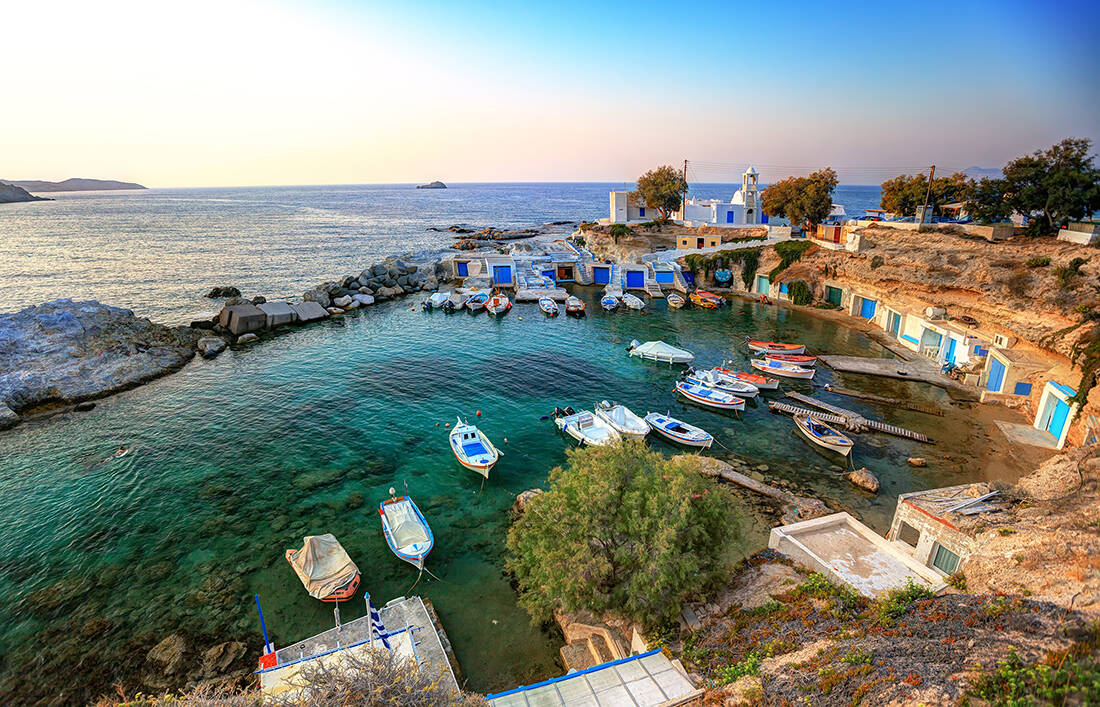
The story of its creation Apple, of the volcanic island with countless and amazing beaches for all tastes with its reference point the lunar Saracen, is a bit complicated as it involves the goddess of love and beauty, Aphrodite, the god of war and wife of Aphrodite, Mars and the beautiful demigod Adonis. Legend has it, then, that when Mars discovered that Aphrodite had fallen in love and had an affair with Adonis, he killed the beautiful demigod while hunting a giant boar (from the blood of the handsome young man the first red roses sprouted, while from the tears of the inconsolable Aphrodite for his doom the anemones).
Then, Milos, a close friend of Adonis, unable to bear the loss of his friend, was hanged from a tree - later he took his name and was named apple - giving a tragic end to his life. His wife, Pelia, shocked by the double loss, followed in his footsteps and hanged herself. The child that the couple had acquired, named Milos from his father, was taken over by the goddess Aphrodite and sent to Delos, the place of origin of his father. This Milos, therefore, is considered the second and the first inhabitant of Milos, to which he gave his name. The worship of his beloved goddess Aphrodite was transferred, of course, out of gratitude of Milos to his somewhat "aunt" on the island, where in 1820 the famous statue from the Hellenistic era of "Aphrodite of Milos" was discovered, which is kept in the Louvre museum.
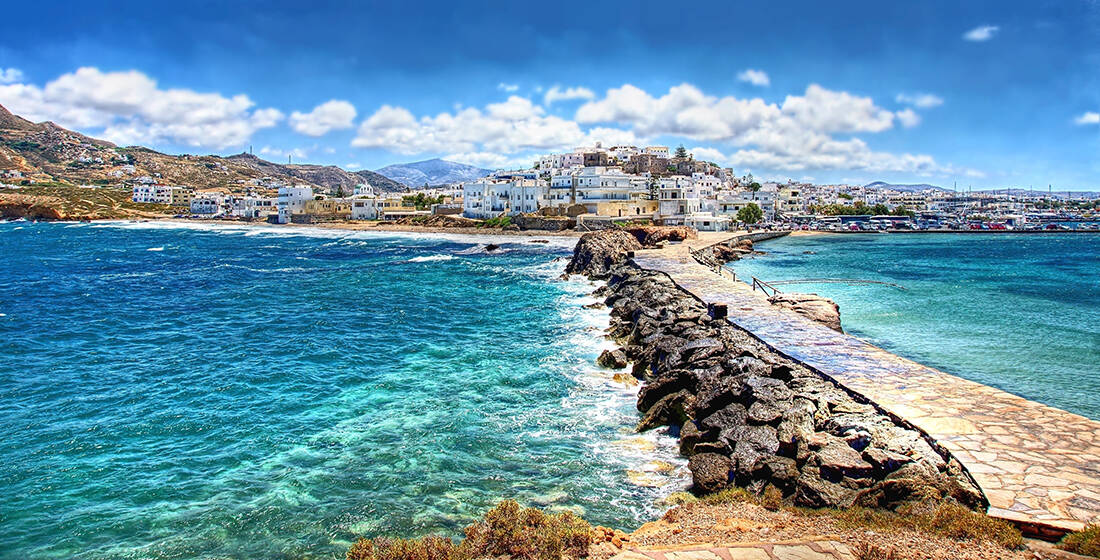
Η Naxos is one of those islands in the Cyclades that is inextricably linked to mythology, with "protagonists" Zeus, father of the gods, and Dionysus, god of wine. One of the highest peaks not only of the island but of all the Cyclades, is found at an altitude of 1.004 meters inland of the island, southeast of the village Filoti, and according to legend was a place where Zeus grew up. Proof that this mountain was a focal point in mythology an ancient inscription on a rock that says "Mountain of Zeus, protector of sheep."
According to mythology, then, the Jupiter arrived here in infancy, to be saved from the wrath of his father, Saturn. His worship took place at the top of the mountain, also known as "Nose of Za", where the inscription "Mount Zeus of Milos", that is, Mount Zeus, is found carved until today. Also associated with the cult of Zeus on Naxos is the cave of Za, which is found at an altitude of 600 meters, one of the most impressive natural attractions of the island.
His birth is also connected with the island of Naxos Dionysus, who was born from the thigh of Zeus, who had taken the fetus from Semeli, daughter of the king of Thebes, who had fallen in love and her mortal heart could not bear the glow of Zeus that appeared in front of her, cooling off before she could give birth to pregnant fetus. The upbringing of Dionysus was undertaken by the Nymphs Filia, Klidi and Koroni in the so-called "evil cave" of Koronos. The inhabitants of Naxos worshiped the god of wine, who mingled on the island with Ariadne (daughter of King Minos of Crete who helped Theseus kill the Minotaur), goddess of fertility. A mixture that endowed the island with rich vineyards and fertile land.
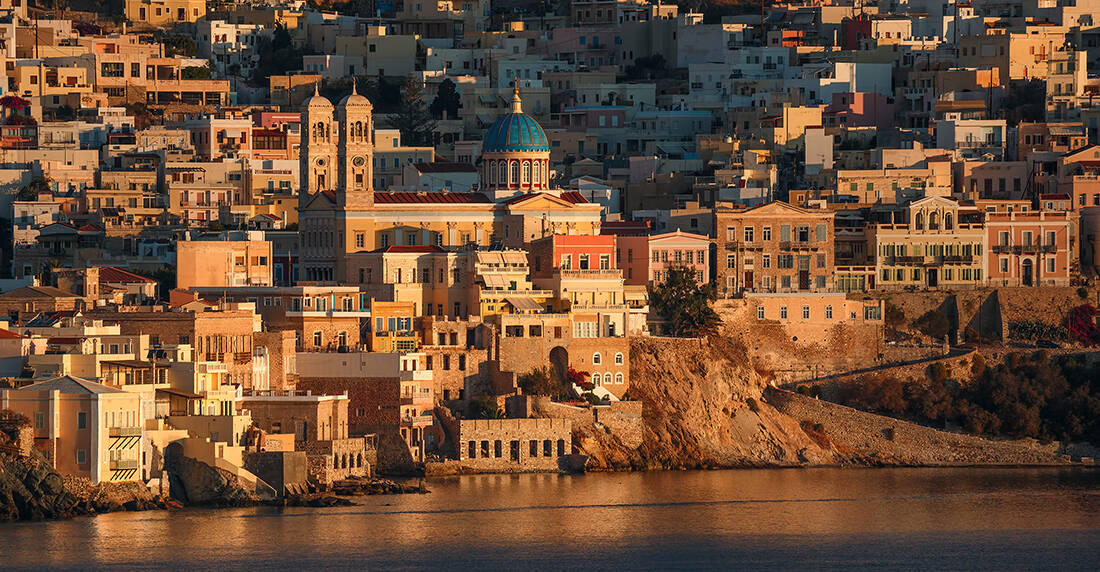
It is no exaggeration to say that this is one of the most beautiful and special islands of the country, as it delivers regular history and culture lessons to both Greeks and foreign visitors.
The myths that accompany her name Syros There are two, with the first, which is even mentioned in archival writing, referring to the first king of the island who lived during the first historical times as it seems, Koiranos. According to him, therefore, Koiranos sank off the sea between Paros and Naxos and was saved from certain drowning when two dolphins took him to Syros. To this day there is a cave on the island, the so-called Koiranion cave, where it is said that he took refuge after his sea adventure. A man respected and with many virtues, he was quickly accepted by the inhabitants of the island, managing to become their king.
Many, in fact, are those who connect the existence of the church of Agia Anna in Pateli, in the place that once honored Koiranos, with the king himself. Regarding this relationship, it is reported that our people call Panagia Kyra and the other Agia Kyrades. Thus, the following correlation takes place that leads to Koiranos. Agia Anna, meaning Kyra Anna, which means Kyranna, from Koiranos.
In addition, the Lady of the Cyclades, as Syros is otherwise known, is rumored to be his birthplace Mercury, although opinions differ as many scholars have claimed that it was Arcadia. Regardless, however, historians agree that the god of wealth, luck and travel must have been of particular importance to the island, as the name of the capital of Syros, Ermoupolis, translates as "city of Hermes".
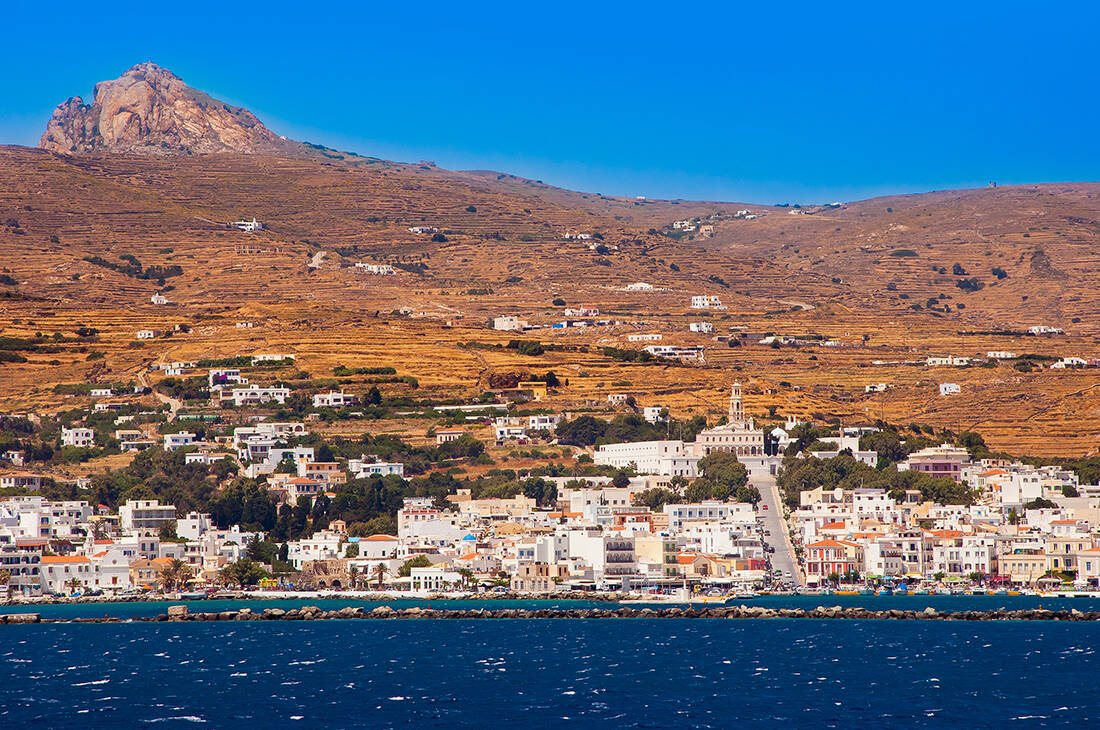
The myth that accompanies Tinos has to do with him Hercules, son of Zeus and one of the strongest men at the time, and the North, while to this day is associated with the characteristic winds that blow on the island. According to the information obtained from Apollonius the Rhodian and his comments on the Argonaut expedition, the two Northerners, Zitis and Kalais, fell victim to the hatred of Hercules for their father North, personification of the north wind.
On their return from the Argonaut expedition, Hercules chased them from the Hellespont to the Aegean. However, because the Northerners were winged, he managed to catch them much lower in the Aegean, almost above Tinos, where he managed to kill them. The two brothers were buried on Mount Gyros, which today is identified with Tsiknias, and above each tomb was placed a large boulder that shook incessantly, sometimes more and sometimes less, always depending on the breath of their father, god of the winds.
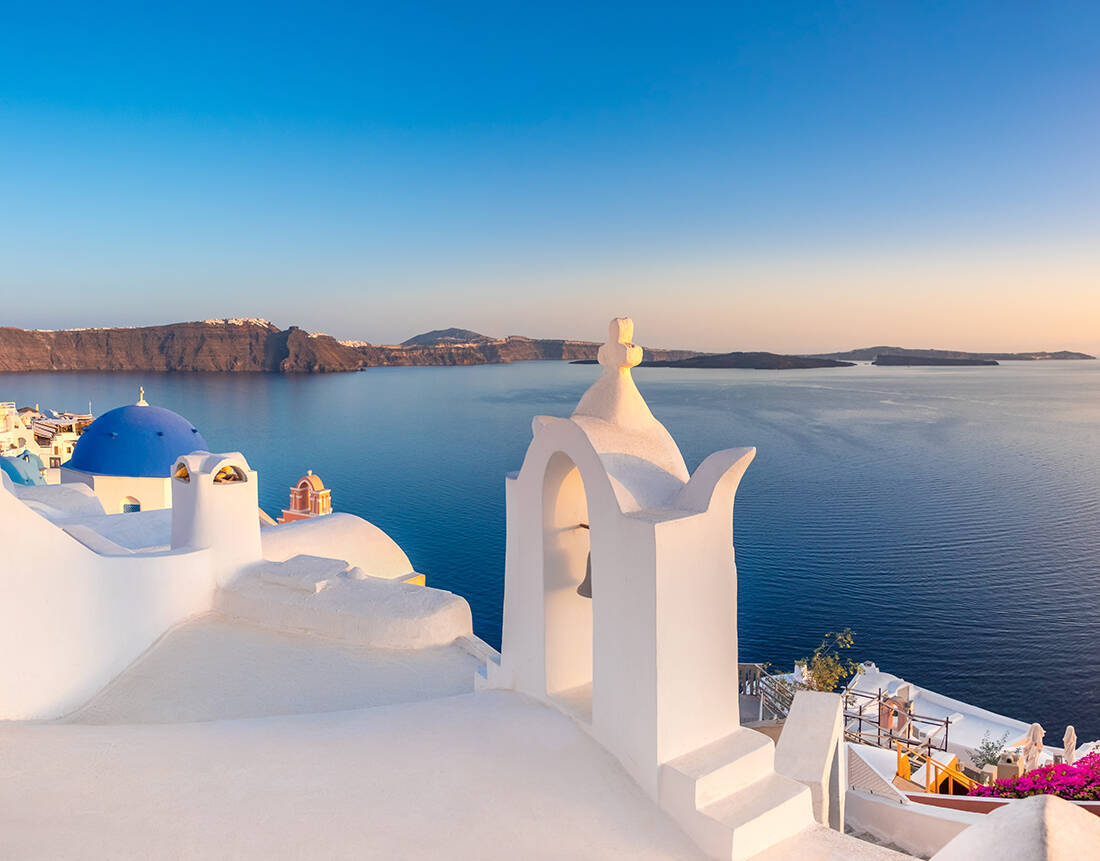
The "birth" of Santorini, the most romantic and special island of the Cyclades, with its dreamy sunset traveling to the ends of the earth, is associated with the Argonauts and the carelessness of a sailor. Legend has it, then, that when the Argonauts returned from Colchis (modern-day Black Sea), they made a stop in Libya where they were hosted by Euripides, king of the country and son of the god Neptune.
The last one, shortly before the Argonauts began their journey back to their homeland, gave him a lump of land as a gift. Due to a carelessness of the navy Efimos when the "Argo", the ship of the Argonauts that was characterized as the fastest and most stable of its time, was near the island of Anafi, the pellet fell into the sea and at this point its island emerged Santorini.
Another myth, however, claims that the island was created by Triton, son of Poseidon and Aphrodite, when he decided to create a separate piece of land between Mainland Greece and Crete. So, he extended his hand and shook the waters of the sea from where the new island named Kallisti emerged because of its beauty. The current name of Santorini, however, is due to Agia Irini of Thessaloniki (Santa Irini, ie Santorini), which in 304 AD. exiled to the island.
